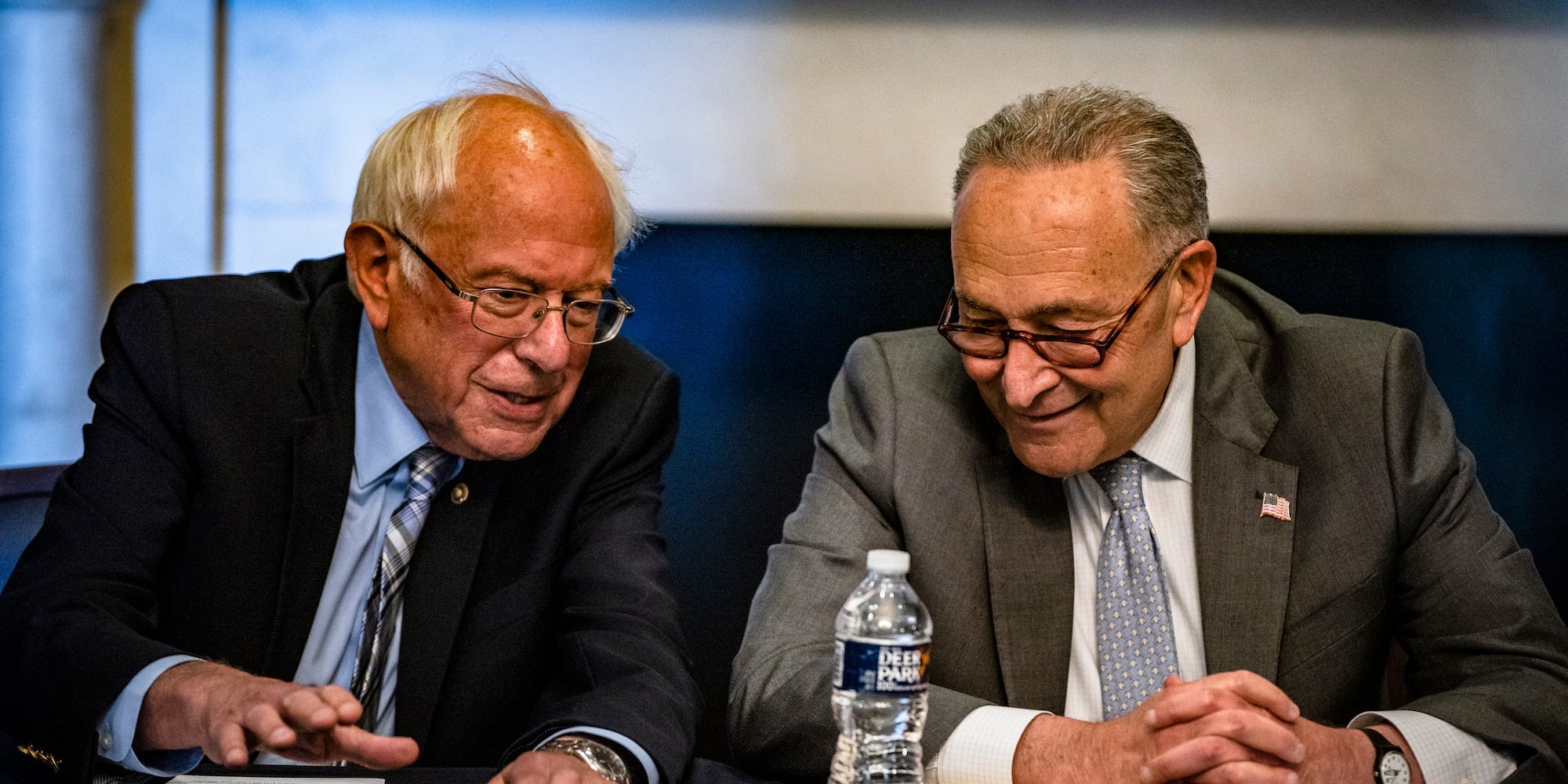
Samuel Corum/Getty Images
- Senate Democrats unveiled their $3.5 trillion budget blueprint on Monday.
- Bernie Sanders called it "the most consequential piece of legislation" since the New Deal of the 1930s.
- It includes a child allowance, Medicare expansion, and affordable childcare, but Democrats have little margin for error.
- See more stories on Insider's business page.
Senate Democrats introduced a $3.5 trillion budget blueprint on Monday that would raise taxes on the wealthiest Americans and large corporations in order to fund a massive expansion of the social safety net, fulfilling a key part of President Joe Biden's economic agenda.
The $3.5 trillion spending plan would expand Medicare so it covers dental, vision, and hearing. It would also set up a paid family and medical leave program, tuition-free community college, child allowance, and clean energy provisions to combat climate change.
It would also create a pathway to citizenship for some undocumented immigrants and would lower prescription drug prices. Democrats want to pay for the plan by increasing taxes on the wealthiest Americans and large firms, while avoiding any tax hikes for people earning under $400,000. The bill would be among the largest spending packages ever taken up by Congress.
"At its core, this legislation is about restoring the middle class in the 21st Century and giving more Americans the opportunity to get there," Senate Majority Leader Chuck Schumer said in a statement.
Sen. Bernie Sanders of Vermont, chair of the Senate Budget Committee overseeing the process, called it "the most consequential piece of legislation for working people, the elderly, the children, the sick and the poor since FDR and the New Deal of the 1930s" in a statement.
It kicks off what may be a fraught legislative stretch for Democrats as they seek to muscle the spending plan through the House and Senate with little margin for error. They want to approve the bill using reconciliation, which allows passage of certain bills with only a simple majority of 51 votes instead of the 60 typically required.
All 50 Senate Democrats must band together to pass the plan with a tie-breaking vote from Vice President Kamala Harris. Sanders and Schumer said they're aiming to clear the bill sometime in September. Republicans are assailing the plan as a massive expansion of government with job-killing tax hikes.
Democrats and Republicans are focused on approving Biden's $550 billion infrastructure bill this week, which would send it to the House. But the plan's fate is tied to this reconciliation package that Senate Democrats are starting to assemble.
Speaker Nancy Pelosi has repeatedly pledged that House Democrats will not take up the bipartisan infrastructure plan until the Senate clears the reconciliation bill.
The reconciliation bill is focused on what Democrats call "human infrastructure," but it omits an extension of pandemic jobless benefits set to expire shortly after Labor Day, meaning at least 7.5 million people could lose all their federal aid. Sen. Joe Manchin of West Virginia came out strongly against its renewal on Saturday.

